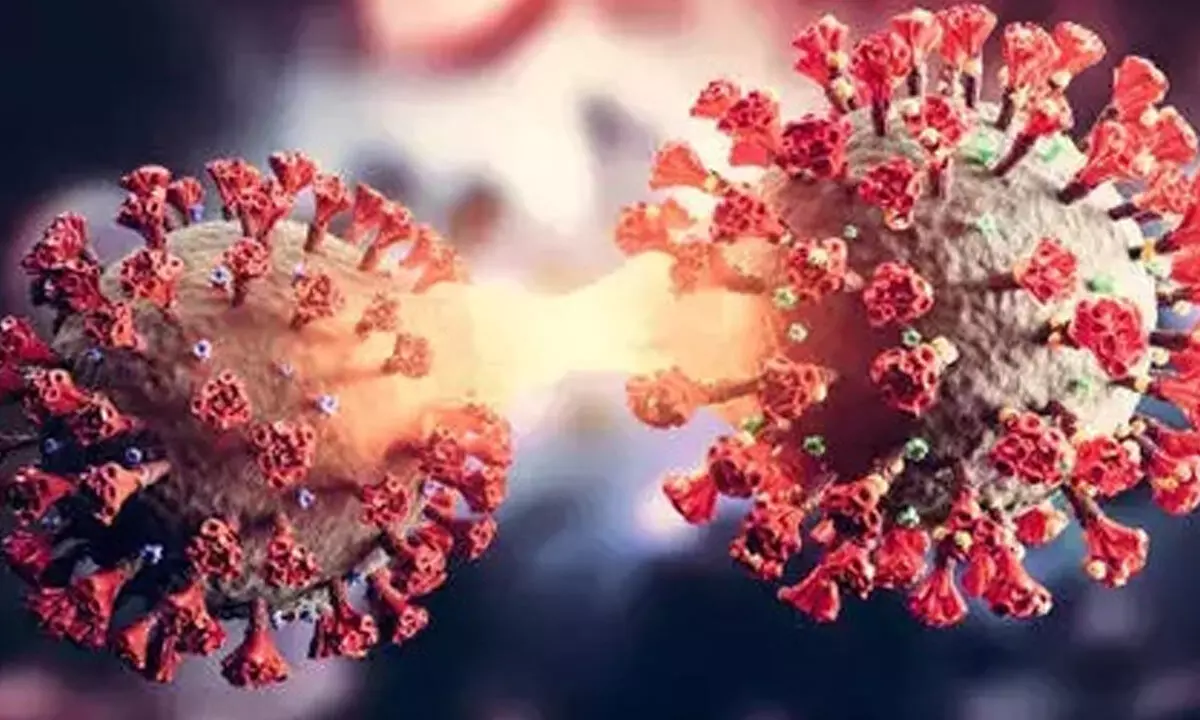Severe Covid-19 is a thrombotic disease: Study
Share :

Blood clotting (thrombosis) in the capillary vessels of the lungs is one of the first consequences of severe Covid-19, even preceding the respiratory distress caused by diffuse alveolar damage, according to a study.
Sao Paulo: Blood clotting (thrombosis) in the capillary vessels of the lungs is one of the first consequences of severe Covid-19, even preceding the respiratory distress caused by diffuse alveolar damage, according to a study.
The study, published in the Journal of Applied Physiology, described autopsies of nine patients who died after developing the severe form of the disease showed a clearly typified condition involving alterations to lung vascularisation and thrombosis.
For the first time, the study describes sub-cellular aspects of the endothelial damage and associated thrombotic phenomena caused by the infection.
It notes the impact of acute inflammation on lung microvascular circulation as the key factor in severe Covid-19, contributing to a deeper understanding of the pathophysiology of the disease and the development of novel therapeutic strategies.
"This study furnished the final proof of what we'd been pointing out since the very start of the pandemic -- that severe Covid-19 is a thrombotic disease. The virus SARS-CoV-2 has tropism for (is attracted to) the endothelium, the layer of cells that lines blood vessels. When it invades endothelial cells, it first affects microvascular circulation," said pulmonologist Elnara Negri, Professor at the University of Sao Paulo's Medical School (FM-USP).
"The problem starts in the capillaries of the lungs (the tiny blood vessels that surround the alveoli), followed by clotting in the larger vessels that can reach any other organ," Negri added.
In the study, the researchers used transmission and scanning electron microscopy to observe the effects of the virus on lung endothelial cells from severe Covid patients who died.
All nine samples obtained by minimally invasive autopsies displayed a high prevalence of thrombotic microangiopathy -- microscopic blood clots in small arteries and capillaries that can lead to organ damage and ischemic tissue injury. The samples came from patients who were hospitalised between March and May 2020, required intubation and intensive care, and died owing to refractory hypoxemia and acute respiratory failure.
The researchers found that endothelial injury tended to precede two common processes in cases of respiratory distress: significant alveolar capillary membrane leakage, and intra-alveolar accumulation of fibrin (associated with blood clotting and wound healing).
"In Covid-19, the clotting is due to endothelial injury and exacerbated by NETosis (an immune mechanism involving programmed cell death via formation of neutrophil extracellular traps or NETs), dysmorphic red blood cells and platelet activation, all of which makes the blood thicker and causes many complications," Negri said.
When the blood is thick and highly thrombogenic, she added, the patient must be kept hydrated, whereas diffuse alveolar damage in acute respiratory distress syndromes due to other causes requires reduced hydration.
"Also, the timing and rigorous control of anticoagulation are fundamental," she stressed.
















